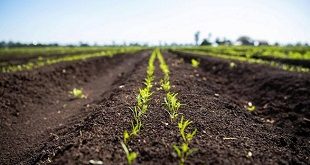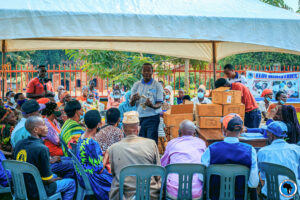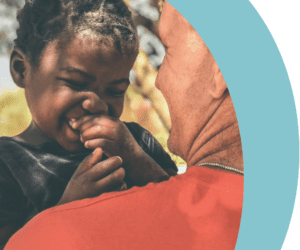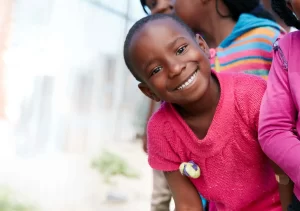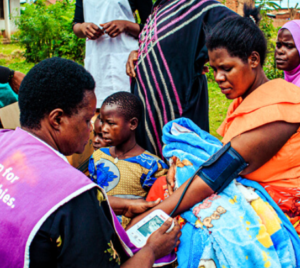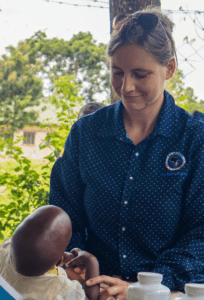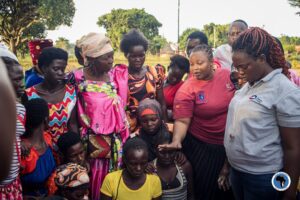Author:: Bagombeka Job
Climate change is a global crisis with far-reaching consequences that extend beyond environmental degradation. In Uganda, a country heavily reliant on agriculture, the adverse effects of climate change are not only disrupting ecosystems but also significantly impacting economic stability and employment. This article delves into how climate change has contributed to rising unemployment rates in Uganda and explores actionable steps that can be taken to address these challenges. Additionally, we will highlight the commendable efforts of ELOI Ministries Uganda in mitigating the impacts of climate change and supporting affected communities.
Understanding Climate Change in Uganda
The Climate Context
Uganda, located in East Africa, is characterized by diverse climatic regions ranging from tropical rainforests to arid and semi-arid areas. The country’s economy is predominantly agricultural, with over 70% of the population engaged in farming activities. However, Uganda’s climate is highly variable and increasingly unpredictable due to global warming, leading to more frequent and severe weather events.
Key Climate Change Effects
- Rising Temperatures: Uganda has experienced a noticeable increase in average temperatures over the past few decades. This warming trend affects crop yields and livestock health, exacerbating food insecurity.
- Irregular Rainfall Patterns: The once reliable seasonal rains have become erratic, with periods of drought alternating with intense rainfall. This unpredictability hampers agricultural planning and productivity.
- Extreme Weather Events: The incidence of floods, landslides, and prolonged droughts has increased. These extreme weather events destroy crops, displace communities, and damage infrastructure.
- Desertification and Land Degradation: Overgrazing, deforestation, and poor land management practices, compounded by climate change, contribute to desertification. This reduces arable land and further strains food production.
The Link Between Climate Change and Unemployment
Agricultural Sector Disruption
Agriculture is the backbone of Uganda’s economy, employing the majority of the workforce. The adverse effects of climate change on agriculture directly translate to increased unemployment in several ways:
- Crop Failures: Erratic weather patterns lead to crop failures, resulting in lost income for farmers and reduced employment opportunities in farming communities.
- Livestock Losses: Increased temperatures and prolonged droughts affect livestock health and productivity, reducing income from animal husbandry and leading to job losses.
- Reduced Agricultural Output: Decreased agricultural productivity affects agro-based industries, leading to job cuts in processing, packaging, and distribution sectors.
Fisheries Sector Impact
Uganda’s fisheries, particularly those in Lake Victoria, are crucial for food security and employment. Climate change affects water temperatures and levels, impacting fish breeding and leading to declining fish stocks. This reduction affects fishermen and those employed in fish processing and related industries.
Forestry and Biodiversity Loss
Forests provide employment through timber production, non-timber forest products, and eco-tourism. Climate change-induced deforestation and biodiversity loss reduce these employment opportunities, contributing to higher unemployment rates.
Migration and Urban Unemployment
Climate change-induced displacement forces rural populations to migrate to urban areas in search of work. This influx increases competition for jobs, exacerbating urban unemployment and straining city resources and infrastructure.
Addressing Climate Change and Unemployment: Strategies and Solutions
1. Promoting Climate-Resilient Agriculture
Climate-smart agriculture (CSA) practices can help farmers adapt to changing climatic conditions. These practices include:
- Drought-resistant Crops: Developing and promoting the use of drought-resistant crop varieties to ensure better yields during dry spells.
- Water Management: Implementing efficient irrigation systems and rainwater harvesting to enhance water availability for crops.
- Soil Conservation: Encouraging soil conservation techniques such as contour farming, terracing, and agroforestry to prevent soil erosion and degradation.
2. Enhancing Agricultural Diversification
Diversifying agricultural activities can reduce dependence on a single crop or livestock type, spreading risk and ensuring more stable income sources. This can include:
- Introducing New Crops: Encouraging the cultivation of crops that are more resilient to climate change.
- Integrating Livestock and Crop Farming: Promoting mixed farming systems to improve resource use efficiency and resilience.
3. Strengthening Fisheries Management
Sustainable fisheries management practices are crucial for maintaining fish stocks and employment. Strategies include:
- Regulating Fishing Practices: Implementing and enforcing fishing regulations to prevent overfishing and ensure sustainable fish populations.
- Restocking Programs: Supporting fish restocking programs and protecting breeding grounds to enhance fishery resilience.
4. Reforestation and Afforestation Initiatives
Reforestation and afforestation can combat deforestation, restore ecosystems, and create jobs. Key actions include:
- Community-Based Tree Planting: Engaging local communities in tree planting activities to restore degraded lands and create employment.
- Promoting Agroforestry: Integrating trees into agricultural systems to provide additional income sources and improve environmental health.
5. Supporting Small and Medium Enterprises (SMEs)
Encouraging the growth of SMEs can provide alternative employment opportunities for those displaced from traditional sectors. Support measures include:
- Access to Finance: Providing microfinance and credit facilities to help entrepreneurs start and expand businesses.
- Skills Training: Offering vocational training programs to equip individuals with skills needed for emerging industries.
6. Infrastructure Development and Urban Planning
Improving infrastructure and urban planning can support economic growth and employment in urban areas. Key initiatives include:
- Building Climate-Resilient Infrastructure: Investing in infrastructure that can withstand extreme weather events to ensure continuity of services and economic activities.
- Urban Green Spaces: Creating green spaces in urban areas to enhance environmental quality and provide job opportunities in maintenance and landscaping.
7. Policy and Institutional Support
Effective policies and strong institutions are essential for addressing climate change and its impact on unemployment. Recommended actions include:
- National Adaptation Plans: Developing and implementing comprehensive national adaptation plans to guide climate action.
- Strengthening Institutions: Enhancing the capacity of institutions responsible for climate change adaptation and employment creation.
ELOI Ministries Uganda: Leading the Fight Against Climate Change and Unemployment
Who is ELOI Ministries Uganda?
ELOI Ministries Uganda is a non-profit organization dedicated to addressing social, economic, and environmental challenges in Uganda. The organization focuses on holistic community development, with a strong emphasis on sustainability and resilience.
ELOI Ministries’ Climate Change Initiatives
ELOI Ministries Uganda has implemented several initiatives aimed at combating the effects of climate change and reducing unemployment. Key projects include:
1. Sustainable Agriculture Programs
ELOI Ministries supports farmers through training and resources to adopt sustainable agriculture practices. These programs focus on:
- Organic Farming: Promoting organic farming methods that improve soil health and reduce reliance on chemical inputs.
- Agroecology: Implementing agroecological practices that enhance biodiversity and ecosystem services.
2. Reforestation Projects
The organization leads reforestation efforts to restore degraded lands and create employment opportunities. Activities include:
- Community Tree Planting: Mobilizing communities to plant trees and maintain forests, providing income and improving environmental health.
- Forest Conservation: Working with local authorities to protect existing forests and prevent illegal logging.
3. Youth Empowerment and Skills Training
ELOI Ministries runs programs aimed at empowering youth with skills needed for employment in climate-resilient sectors. These include:
- Vocational Training: Offering training in trades such as carpentry, tailoring, and sustainable agriculture.
- Entrepreneurship Support: Providing mentorship and resources to help young people start and grow their own businesses.
4. Advocacy and Awareness Campaigns
The organization actively engages in advocacy and awareness campaigns to educate communities about climate change and promote sustainable practices. These efforts include:
- Public Workshops: Hosting workshops and seminars to disseminate information on climate change adaptation.
- Collaborations: Partnering with other organizations and government agencies to amplify their impact and reach.
Success Stories and Impact
ELOI Ministries Uganda has made significant strides in combating climate change and reducing unemployment. Some success stories include:
- Increased Crop Yields: Farmers trained by ELOI Ministries have reported higher crop yields and improved food security.
- Reforested Areas: The organization has successfully reforested several hectares of degraded land, creating jobs and restoring ecosystems.
- Youth Employment: Many young people have gained employment through the skills training programs, contributing to reduced youth unemployment rates.
Conclusion
Climate change poses a formidable challenge to employment and economic stability in Uganda. However, through a combination of sustainable practices, diversification, and community engagement, it is possible to mitigate these impacts and create resilient livelihoods. Organizations like ELOI Ministries Uganda play a crucial role in this endeavor, demonstrating that with the right support and strategies, communities can adapt and thrive despite the challenges posed by climate change.
Addressing the root causes of climate change and unemployment requires coordinated efforts from all stakeholders, including the government, non-profits, and the private sector. By investing in sustainable development and empowering vulnerable populations, Uganda can build a more resilient and prosperous future.
Author:: Bagombeka Job

